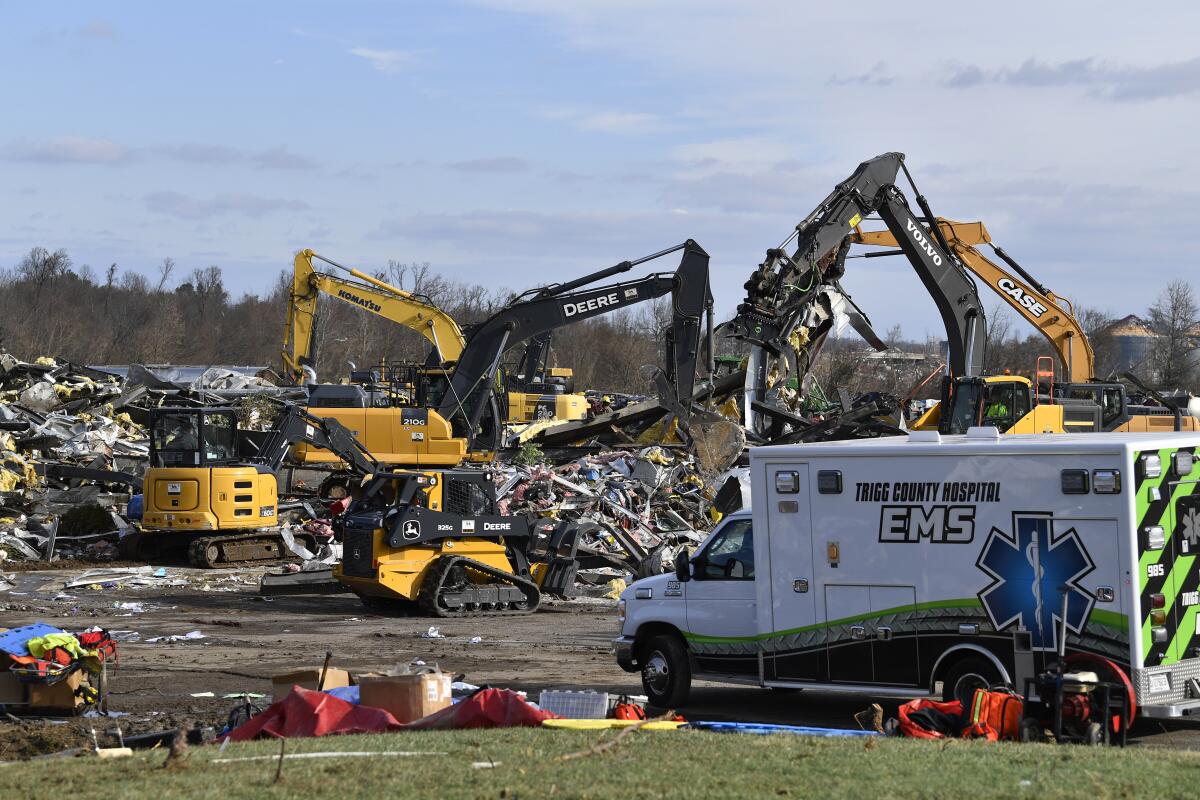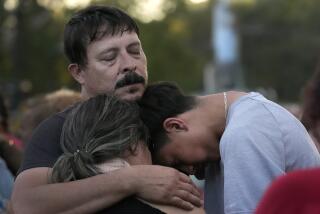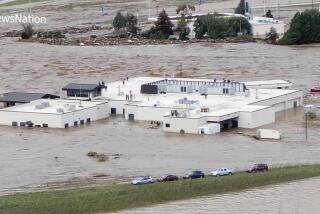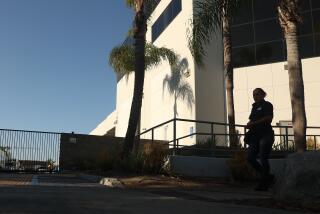After 8 die in Kentucky candle factory, workers question company’s tornado preparation

MAYFIELD, Ky. — The first tornado warning was already over when Elijah Johnson walked onto the candle factory floor to begin his 6 p.m. shift.
A team leader instructed the 20-year-old candle inspector to get into position on the production line. Johnson began checking candles on the conveyor belt, until he heard a group of workers ask the night supervisor if they could leave before the brunt of the storms.
Johnson asked too, he said, but the supervisor said no.
“Even with the weather bad like this, you’re still not going to let me go?” he asked.
Days after the massive storm system tore through Kentucky and five other states — killing 88 people, including eight at the candle factory — some workers have raised questions about the company’s tornado preparation: Why didn’t the factory stop production and close for the night? Why didn’t supervisors send out messages informing workers that if they left because of the storms they would not be penalized? Or at least given those who stayed clearer safety instructions?
The company that owns the candle factory has denied any wrongdoing involving the recent storms.
Johnson said his supervisor told him he had clocked out early too many times on other days. Leaving the night of the storms last week would result in serious consequences, Johnson said he was told.
“You know the rule,” he said the night supervisor told him. “If you leave, you’re going to be terminated.”
Several hours later, the tornado sirens blared again. Team leaders ushered everyone to a hallway near the bathrooms for shelter, and Johnson dropped to the ground with his hands over his head and knees over his stomach.
When he opened his eyes, he was trapped under a concrete wall. The entire warehouse was pulverized, and all around him co-workers gasped and screamed.
He dialed his father. “I’m stuck! I’m stuck! I’m stuck!”
Eight of the 110 workers who stayed in the Mayfield factory Friday night did not make it out alive. Dozens were hospitalized.
The company denied workers’ claims that supervisors or team leaders prevented employees from leaving. A spokesman said the factory had adjusted its workplace policies as it faced labor shortages during the pandemic to allow employees to clock out and leave without consequences.
“Absolutely false,” Bob Ferguson, a spokesman for Mayfield Consumer Products, said regarding reports of company rules that allegedly prevented employees from leaving work. “Employees are always free to leave if they want to.”
The candle factory was not alone in staying open during the tornado. Many of the town’s other big employers, from the Pilgrim’s Pride chicken plant to the local Walmart Superstore, did not shutter.
Ferguson said Mayfield Consumer Products had followed government regulations set out by the Federal Emergency Management Agency and the Occupational Health and Safety Administration to establish emergency response plans, identify places for workers to shelter and account for who is on the work site.
The candle factory said it welcomed further guidance from officials.
“If climate change or something is happening where the storms are of a greater threat or ferocity,” Ferguson said, “we would ask our safety administrators, our government to tell us: Should we alter the policies that are in place?”
Most of the people who perished in the weekend storms were not gathered in a large workplace, but in single-family houses, trailers and nursing homes. But the eight deaths at the candle factory — along with six workers killed at an Amazon distribution center in Edwardsville, Ill. — have prompted some labor experts and economists to call for greater study of the risks of working in large warehouses across the Midwest and the South, particularly as concern builds that global warming is making storms more frequent and more severe.
“With climate change, there’s a growing awareness that safety standards need to be updated, with more attention to keeping workers safe,” said Marcus Dillender, an economist at the University of Illinois at Chicago’s School of Public Health. “We can’t rely on companies to do this.”
While OSHA encourages employers to develop emergency action plans for natural disasters, it does not have specific rules limiting whether employers can require workers to go to work during a storm, Dillender said. Health and safety laws governing OSHA contain a “general duty clause” that requires companies to provide safe working conditions, but Dillender said the mandate is too vague to be helpful.
Even if OSHA had a sweeping policy requiring every employer to have an emergency response plan, the agency is too underresourced, he said, to monitor companies regularly and ensure compliance.
Companies that employ workers in massive factories and warehouses — in some cases thin, modern metal buildings that typically don’t have basements — should explore how to create infrastructure that can withstand powerful tornadoes, said Beth Gutelius, research director at the Center for Urban Economic Development at the University of Illinois-Chicago.
“We need to think about and plan ahead to make sure both buildings they work in and emergency preparedness protocols in place are as strong as they need to be and as proactive as they need to be,” Gutelius said.
As the tornado approached, the factory that supplies candles to stores such as Bath & Body Works was dealing with a Christmas rush amid staff shortages. Online, it was advertising for employees who would work 10- to 12-hour shifts in a “fast-paced environment.” The starting wage was $8 an hour.
“Mandatory overtime will be required frequently, either by extending your shift or working on Friday,” the company said in a job posting.
Isaiah Holt, 32, who worked in the wax and fragrance department, mixing chemicals to make the candles, said the company’s pay structure involved incentives that required him to work 50 hours a week and a minimum of two Saturdays a month to get his pay bumped from $12 to $15 an hour.
Even if workers were technically free to leave, Holt said, working fewer hours meant losing more than just a few hours of pay. He would forfeit a higher pay rate for every hour worked that week.
“They kind of got us in a spot,” he said.
Many of the workers who stayed in the Mayfield warehouse Friday night did not ask to leave.
Autumn Kirks, a 34-year-old team leader, said she and her fiance, Lannis Ward, considered taking shelter at home when a small group of workers got ready to leave after the first tornado warning. But while they would have preferred to ride out the storm at home with family, they decided that, as team leaders, they needed to stay to keep production lines running.
“Our team is depending on us,” Ward told her.
Ward did not make it out of the factory alive.
On Tuesday, Kentucky Gov. Andy Beshear announced that the Kentucky Division of Occupational Safety and Health Compliance would conduct an investigation into the Mayfield factory deaths, noting that such reviews are standard and “shouldn’t suggest that there was any wrongdoing.” President Biden visited the state on Wednesday.
Some candle factory workers were upset by their co-workers’ criticism of supervisors.
“It breaks my heart to hear these bad comments on Facebook about making employees stay at work,” day shift supervisor Linetta Burney posted on Facebook on Sunday night. “Everybody knows damn well they would not MAKE anybody stay.”
As Holt recovered this week from broken ribs and a punctured lung in a hospital bed in Nashville, he said he had little sympathy for company management. His older brother, Bobby Holt, who had just started working at the factory that week, was in a coma with kidney damage stopping the blood flow in his legs.
“Negligence, negligence, negligence — and greed,” Holt said of the company’s response to the storms. “Everybody that’s in charge needs to be locked up, without any type of compassion — not just because they’re the worst people in the world, but so other people don’t do this.”
More to Read
Sign up for Essential California
The most important California stories and recommendations in your inbox every morning.
You may occasionally receive promotional content from the Los Angeles Times.












